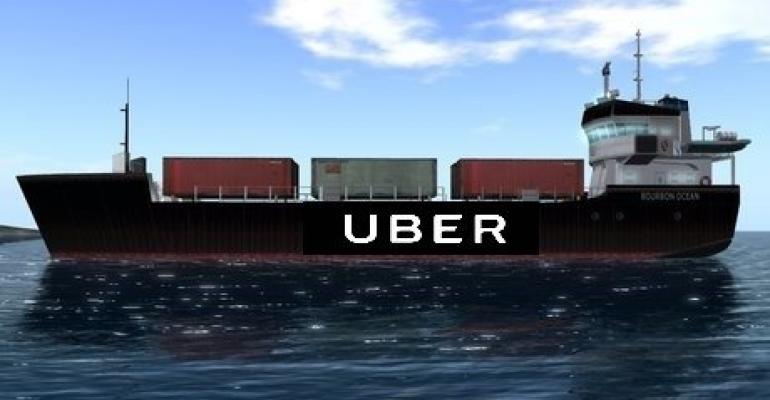On a panel on the second day Christopher Rex, head of research at Danish Ship Finance, asked the question of how shipping, which is clearly commoditised already and getting more so in an age of slow growing trade flows, could pick up additional streams of economic value.
His main focus is to identify “ways to turn shipping data into an asset that could be monetized” and, in so doing, point the industry away from its present path where “ships are turned into Uber drivers, simply hoping to secure their next ride”.
In his view, a reinvented operating model- where data can optimize vessel performance and the “customer experience” - presumably things like just-in-time arrivals, though this was never stated explicitly in the speech - would be vehicles for creating the desired streams of value.
On the same panel, industry veteran Frank Coles, now at the helm of Transas Marine, also looked into the future, noting that logistics is moving at a more rapid pace than operators who provide the actual transport.
For inspiration, he pointed to the aviation industry, where data is shared among disparate stakeholders. As examples, he explained how a “Big Data” model of collision avoidance where real time watch of vessel tracks and maneuvers could be used to identify errant vessels BEFORE an accident occurs. Implicit in Coles’ speech is the notion of actionable data collection, as opposed to vapid collection of data without a clear objective.
Coles also alluded to “human factors” from multiple angles- he pointed again to the “high reliability” due to “repeatability of processes” seen in aviation. He also talked about the multiple faces of “disruption as a younger generation of participants and leaders drive the industry forward”. As an example, he noted that “tomorrow’s shippers will demand safer and environmentally friendly ships,” commenting that some charterers (BHP was mentioned) are already putting such ideas into action.
Organizational structure was also at the forefront, he noted that the newer generation was not friendly towards bureaucracies, and that the movement towards a high-reliability cooperative culture would necessitate an end to the archaic “spaghetti like structure” of stakeholders such as class, flag, port, industry associations, NGOs and so forth.
In contrast to the notions of openness imbued in the presentations of the first two speakers, Scott Borgerson, a one-time US Coast Guard Officer who is the founder, and prime mover, of Cargometrics, a Boston based institutional money manager and quantitative trading firm concentrating on shipping related flows, was mum on specifics, and admitted to being “still in stealth mode” eight years after his firm’s inception, using vast computing power to parse data.
He expressed a desire to build Cargometrics into “The NSA [National Security Agency, a US intelligence gathering arm] of world trade.” Transparency will factor into Cargometrics’ plans going forward- he expressed a hope to integrate diverse data on movements of vessels and cargo “into a tapestry” that could provide data, for sale, on trade flows.
Copyright © 2024. All rights reserved. Seatrade, a trading name of Informa Markets (UK) Limited. Add Seatrade Maritime News to your Google News feed.


